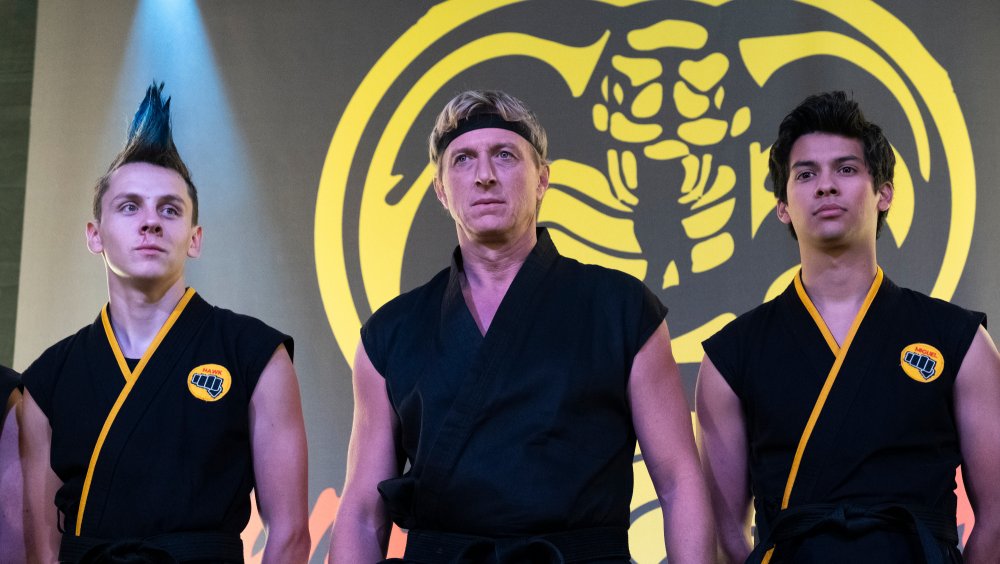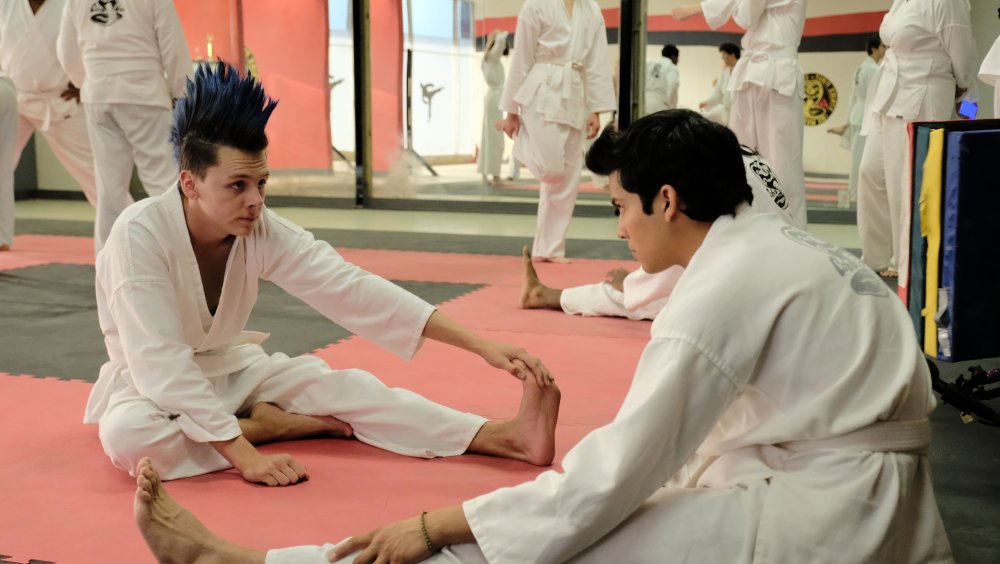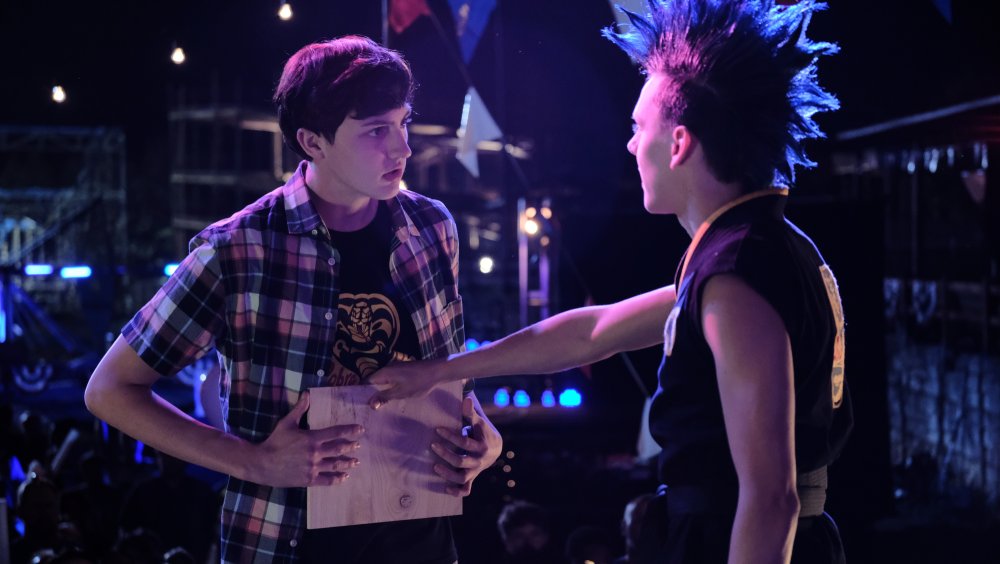The Fan Theory About Cobra Kai's Trios That Will Make Your Head Spin
Spoilers for Cobra Kai seasons 1 and 2 below
There's a reason so many of your favorite fictional trios bear more than a passing resemblance to each other, and it turns out it's a Freudian thing.
No, not like that — the other way. It's because so many of them are based on Sigmund Freud's concepts of the id, ego, and superego.
As the good doctor would have it, the id is powered by our needs and wants, our impulses and our desires, our aggression and our libido. The superego, meanwhile, is the manifestation of cultural rules on the psyche, what we think we should be doing, what would make our parents proud. The ego curbs the id's recklessness, and attempts to reconcile its demands with reality and with societal demands as represented by the superego.
Think Ferris and Cameron with Sloane in the middle from Ferris Bueller's Day Off, or Hooper, Quint, and Brody from Jaws. The guts, the brains, and the person who tries to balance them out ... just like in Netflix's Cobra Kai, according to one Redditor, who says the show features a pair of Freudian Trios that power much of its conflict.
What does Freud have to do with Cobra Kai?
"I think the 3 main Karate philosophies on the show demonstrate these 3 aspects pretty well," u/Guilty-Pomegranate71 writes. "Kreese's Cobra Kai — Id: treats life as a war where you take what's yours and show no mercy. Miyagi-Do — Superego: karate is for defense and balance, discourages violence wherever possible. Johnny's Cobra Kai — Ego: still an emphasis on strength and power, but balanced with the ability to think for yourself and recognise the gray areas of life."
This dynamic plays out in the relationships between the characters. Kreese (Martin Kove) accuses Johnny (William Zabka) of being too soft for stepping away from the id. Daniel LaRusso (Ralph Macchio) thinks Johnny's too impulsive and reckless. They come at him from opposite sides, the two guys on his shoulders, pulling him toward their perspectives.
Kreese thinks life only makes sense processed through the lens of war. Daniel gets pushback from his wife and from the community for even starting Miyagi-Do, demonstrating his desire to live up to societal norms. It's up to Johnny to decide which path to follow, or how to strike the balance.
Which of Cobra Kai's younger characters represent the id, ego, and superego?
The poster also points out how the show duplicates the trio in three of the characters who join the new Cobra Kai dojo: Hawk (Jacob Bertrand), Demetri (Gianni Decenzo), and Miguel (Xolo Maridueña). Hawk, who cheap-shots Robby (Tanner Buchanan) at the All-Valley tournament at the end of season 1, responds favorably to Kreese's more ruthless style, and steals Mr. Miyagi's Medal of Honor when the Cobra Kai students vandalize the Miyagi-Do dojo, represents the id. Demetri, on the other hand, is too logical to give into his anger and rejects the brutality of Cobra Kai in favor of the balance of Miyagi-Do.
Miguel, like Johnny, is torn between the two paths. He gives in to the id of Cobra Kai by targeting Robby's injured shoulder to become the All-Valley champion –– the bad taste this victory leaves inspires Johnny to seek the middle path for the reborn Cobra Kai –– but recognizes that Kreese is pulling his friends in the wrong direction. Tellingly, he rejects the instinct of Hawk to hit Miyagi-Do where it hurts the most by returning the Medal of Honor. He eases up on Robby in the final episode of season 2, though it ends poorly for him when Robby lashes out and injures him.
Thus Miguel mirrors Johnny's narrative journey, trying to find stability in that middle ground, balancing between his instincts and the brake in his head that tells them to slow up, to show mercy, and between the people who would pull him toward one side or the other.


